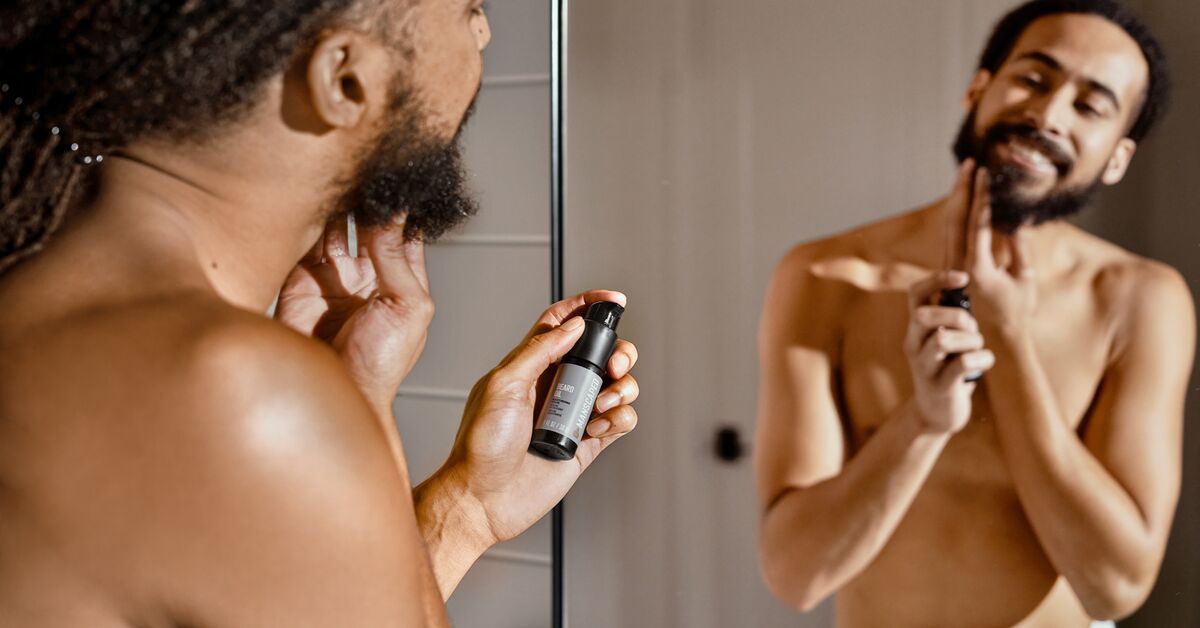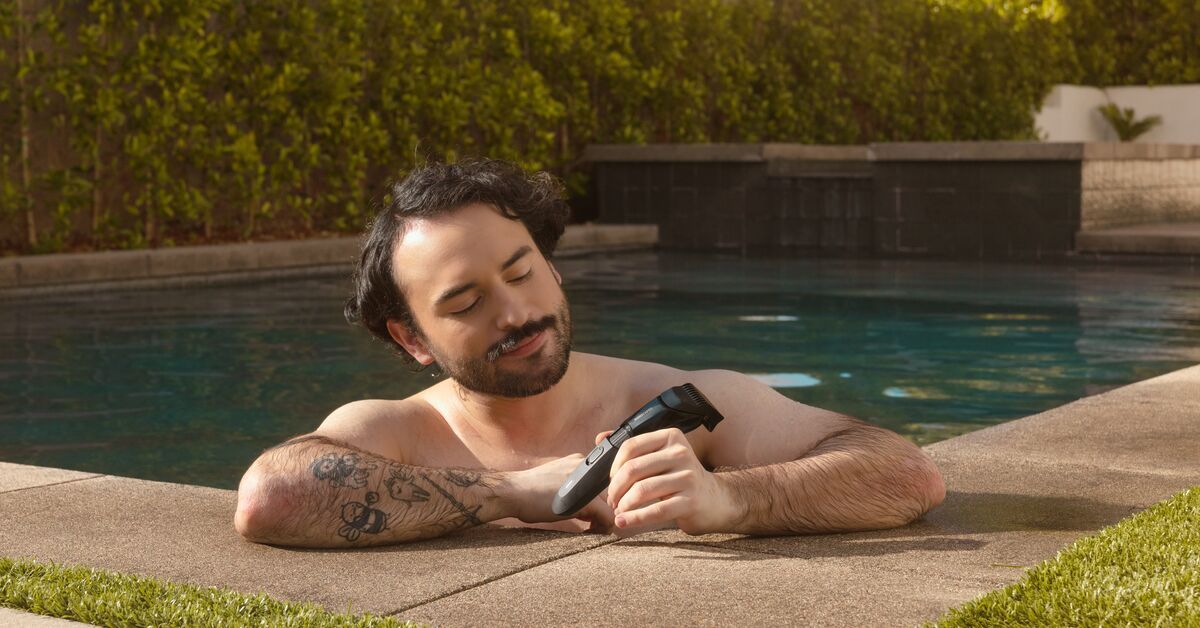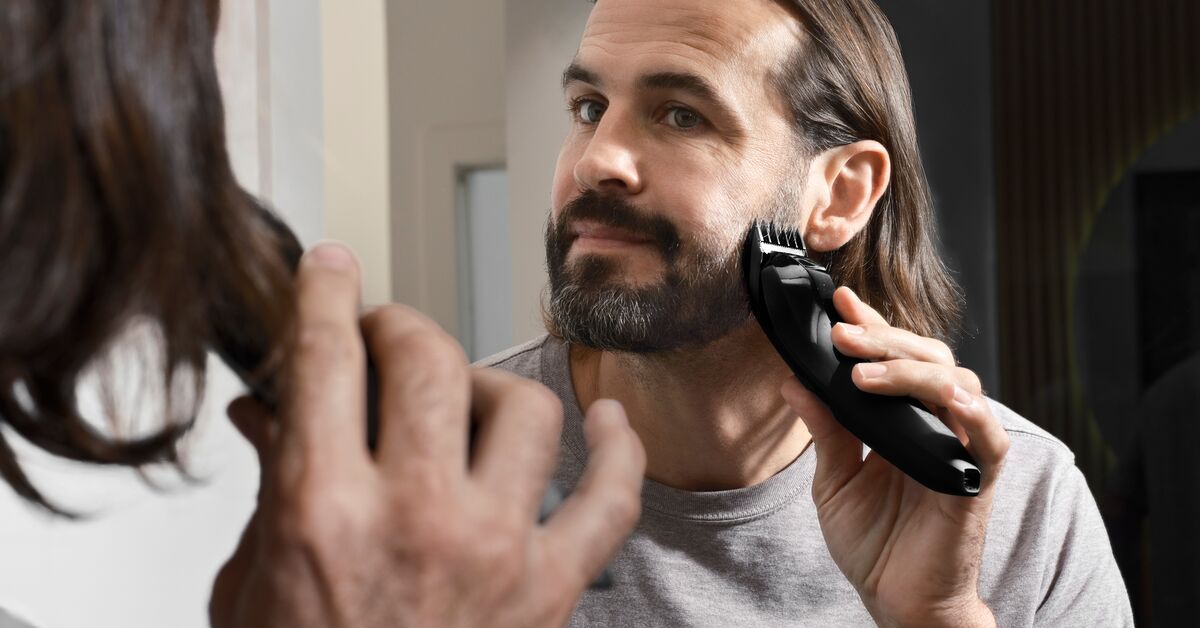
Why your beard itches and how to stop it.
Your beard does more than just frame your face—it offers style, intrigue, and just the right amount of ruggedness. For many men, beards are as essential as any other part of their body—but, sometimes, our beards irritate rather than elevate us.
At one point or another, almost every man with facial hair has wondered, “Why does my beard itch?” Fewer, however, have found the right answer—and the right solution.
From prickly hairs to skin dryness, beard itch can stem from all sorts of causes. Luckily, with the right knowledge, care routine, and products, you can maintain that quintessential bearded look without suffering from irritation.
The frustration of beard itch.
Beards are on the rise, the world over. Over a third of American men rock a beard at any given moment, while across the pond, more than 60% of British lads have one form of facial hair or another.
And this isn’t by accident. Many men cultivate beards to send a message about their character. Studies have actually found that men often skip the razor to appear:
-
Formidable
-
Older
-
Authoritative
But if you’re constantly scratching at your roots and complaining about itchiness, your beard can convey the opposite of what you intend it to.
Almost every man who lets his beard grow past stubble experiences itchiness, making it a natural part of the growth process. Generally, it’s even more pronounced during the earliest stages. But just because it’s natural and common doesn’t mean it’s welcome.
Beard itch can:
-
Make us feel silly in front of our partners and friends as we claw away at our skin in hopes of relief.
-
Annoy us in serious situations when it’s not acceptable to scratch.
-
Cause us to give up on growing facial hair altogether.
Luckily, there are effective ways to eliminate itch and grow your beard to your heart’s content. But before you can learn how to stop beard itch, you need to understand its root causes.
Why do beards itch?
There's no single answer to “Why is my beard itchy?”
Instead, there are a variety of factors that can lead to discomfort, irritation, and the need to scratch, including:
-
New growth – As new hairs rise from their roots and poke their way through your skin, they can irritate your face. While any man can experience this issue, it’s even more pronounced in guys with Pseudofolliculitis Barbae (PFB), a chronic condition that affects facial hair follicles. PFB causes inflammation around the root of beard hairs, which can lead to more severe itchiness for the grower.
-
Sharp edges – Short, fresh beard hairs can also fold over as they grow, poking their sharp tips into the surrounding skin cells and causing irritation. Once again, any man can experience this condition, but it's more prevalent in dudes with PFB.
-
Dry skin and lack of hydration – In general, dry skin—whether from dermatitis, eczema, or simply beard growth—causes chronic itchiness. Your skin secretes its own natural oils, known as sebum, to help maintain proper hydration levels, but hair can pull this sebum away from your skin and wick it off. As your beard wicks sebum off your face, your skin can dry up, leading to itchiness and irritation.
-
Poor hygiene and beard buildup – Failing to properly wash your face increases your chances of skin issues like dermatitis (patchy redness), edema (swelling), and acne. Even on a clean-shaven face, these issues can lead to itchiness. With a beard, however, the irritation is often amplified. Why? Beards harbor far more bacteria, oils, and dirt than skin alone, and these can quickly spiral into itch-inducing dermal conditions.
-
Beard dandruff – Beardruff, as it’s known, is just like the dandruff on your scalp: dry skin cells that fall off your head, causing itchiness and embarrassment. Beardruff is sometimes linked to a skin condition called Seborrheic Dermatitis (SD), which causes inflammation along with shedding skin. Most beardruff sufferers, however, don’t have SD—they simply experience dry skin and other issues that lead to flakiness.
-
Ingrown hairs – Ingrowns occur when your hairs fail to break through your upper dermal layer and instead continue to grow underneath your skin. They can cause pain, swelling, and itchiness until properly treated.
Any one or combination of these factors can cause an uncomfortable, itching feeling beneath your facial hair. Thankfully, you can address and alleviate them all with the right beardcare routine.
How do you stop beard itch?
Beard itch doesn't mean you have to ready your razor. To keep your pride and joy but shave off the irritation, follow these best practices:
-
Wash regularly with a beard-safe cleanser – Beard shampoo is specially formulated to cleanse coarse, delicate beard hair without stripping away your skin’s natural oils. It does, however, effectively remove the excess dirt, grime, and grease that often gets caught up in beards. To take advantage, gently massage the cleanser into your beard and rinse it clean one to three times a week, depending on your personal needs.
-
Exfoliate under your beard – Beards cause oil and dirt to get trapped against your skin, where they can quickly turn into acne and other itchy issues. To prevent this, exfoliate the skin under your beard with a suitable face wash and, if necessary, a face buffer for extra scrubbing power.
-
Moisturize daily with a beard oil or conditioner – Beard oil and beard conditioner provide extra moisture to dry, frizzy facial hair and its underlying skin. With nourishing oils, antioxidants, and several key vitamins, these products restore natural hydration levels and leave your hair shining. Apply them one to three times a week to maintain your natural sheen or, if your beard is severely dried out, use them daily to return your facial hair to its former glory.
-
Trim the ends to avoid sharp edges – The pokey, pointy edges of your beard often fold over and cause irritation to the surrounding skin. Keep those edges trimmed with a beard hedger to avoid irritation. Simply set the guard to your desired length and start shaving—you’ll have an even, cleaner, and softer beard in minutes.
Despite all these steps, you may still encounter beard itch from time to time. In certain cases, it's not about keeping your facial hair clean and hydrated; it’s about making lifestyle changes to stop your beard from itching in the first place.
Lifestyle factors that make beard itch worse.
Your beard is a key part of your identity—but other aspects of your lifestyle may be causing its seemingly incurable itch. If you try all the above fixes but the irritation remains, you may have to take additional measures:
-
Eliminate hot showers – As comforting as it can be to soak in a steamy shower, hot water has negative effects on skin and hair. In particular, it can strip away the body’s natural oils, leaving the skin dry and flaky. Hot water also increases the chances of erythema, a reddening of the skin’s surface, which can also lead to itchiness.
-
Use softer shampoo – Even if you use a separate shampoo for your hair and beard, the solution you scrub into your scalp eventually trickles down to your face. From acetone to alcohol and a host of other chemicals, certain shampoos contain inflammatory, irritating ingredients that can cause beard itch. Preservatives, dyes, and fragrances can also trigger allergic reactions, resulting in further itchiness.
-
Drink more water – You may keep on top of your skin and hair moisturization, but have you paid enough attention to the rest of your body? Failure to drink enough water results in dehydration, which can in turn lead to xeroderma—also known as dry skin. If your skin is itchy under your beard or anywhere else, try drinking more water. Proper hydration could be the key to clearing it up.
Sometimes, fighting beard itch requires a combination of lifestyle changes and self-care. To keep your skin and beard looking and feeling their finest, maintain beard-friendly habits and select quality products that are specifically formulated for use with facial hair.
Best products for beard itch relief.
Another key element of relieving beard itch is understanding the difference between:
-
Beard oils and conditioners – Beard oils and beard conditioners are formulated to moisturize your hair and skin. They contain hydrating ingredients that turn itchy, scruffy strands soft and fluffy.
-
Beard balms – Beard balms help you shape and style your facial hair, rather than relieve itch. They contain moisturizing ingredients, but not as many as oils and conditioners. To use them, rub a bit of balm between your fingers until it’s warm and pliable, work it into your beard, and shape it into your desired style.
If itch is your issue, you’ll want to reach for beard oils and conditioners, rather than balms. You can also minimize irritation by keeping your hair trimmed with a beard hedger. Remember to keep your razor sharp and order replacement blades as necessary—a dull edge can lead to further irritation.
Sticking with quality skin and beard products from a dedicated men’s care brand can also help you avoid itching in your most sensitive areas.
Beat beard itch and feel your freshest with MANSCAPED®.
Why does my beard itch?
It may be because you aren’t using MANSCPED’s men’s skincare and beard products. Other, lower quality cleansers with harsh dyes and fragrances—or soaps made for different parts of your body—can dry out beards, leaving them flaky and itchy.
MANSCAPED® beard oils, cleansers, and balms are made with your face in mind. They’re crafted for all hair types, compatible with sensitive skin, and they smell sensational.
Escape beard itch for good with MANSCAPED®.
Sources:
Journal of the American Academy of Dermatology. June 2022: Trichorrhexis nodosa of the beard associated with mask use. https://www.jaad.org/article/S0190-9622%2822%2900543-6/abstract.
National Library of Medicine. Men’s Facial Hair Preferences Reflect Facial Hair Impression Management Functions Across Contexts and Men Know It. https://pmc.ncbi.nlm.nih.gov/articles/PMC10501953/.
National Library of Medicine. Pseudofolliculitis barbae; current treatment options. https://pmc.ncbi.nlm.nih.gov/articles/PMC6585396/.
National Library of Medicine. Mechanisms and Management of Itch in Dry Skin. https://pmc.ncbi.nlm.nih.gov/articles/PMC9129002/.
National Library of Medicine. Facial Skincare Routine Adherence in the General Population. https://pmc.ncbi.nlm.nih.gov/articles/PMC11735236/.
National Library of Medicine. Seborrheic Dermatitis. https://www.ncbi.nlm.nih.gov/books/NBK551707/.
National Library of Medicine. Facial Skincare Routine Adherence in the General Population. https://pmc.ncbi.nlm.nih.gov/articles/PMC11735236/.
National Library of Medicine. Intradermal Growing Hair: Two Case Reports. https://pmc.ncbi.nlm.nih.gov/articles/PMC6440291/.
National Library of Medicine. Facial microbial flora in bearded versus nonbearded men in the operating room setting: A single-center cross-sectional STROBE-compliant observational study. https://pmc.ncbi.nlm.nih.gov/articles/PMC9542990/.
National Library of Medicine. Impact of Water Exposure and Temperature Changes on Skin Barrier Function. https://pmc.ncbi.nlm.nih.gov/articles/PMC8778033/.
National Library of Medicine. CLEANSERS AND THEIR ROLE IN VARIOUS DERMATOLOGICAL DISORDERS. https://pmc.ncbi.nlm.nih.gov/articles/PMC3088928/..
National Library of Medicine. Xeroderma. https://www.ncbi.nlm.nih.gov/books/NBK565884/.
11.15.25
Share

Featured Articles
- Your Favorite Ball Deodorant. Now with a New Scent: Perservere.MANSCAPED® + TCS for Testicular Cancer Awareness MonthIntroducing The Lawn Mower® 5.0 Ultra TCS Special Edition and TCS Ball Hero BundleThe Dome Shaver™ Pro vs. The Dome Shaver™ Plus: Which Should You Choose?The Chairman™ Pro vs. The Chairman™ Plus: Which Should You Choose?



